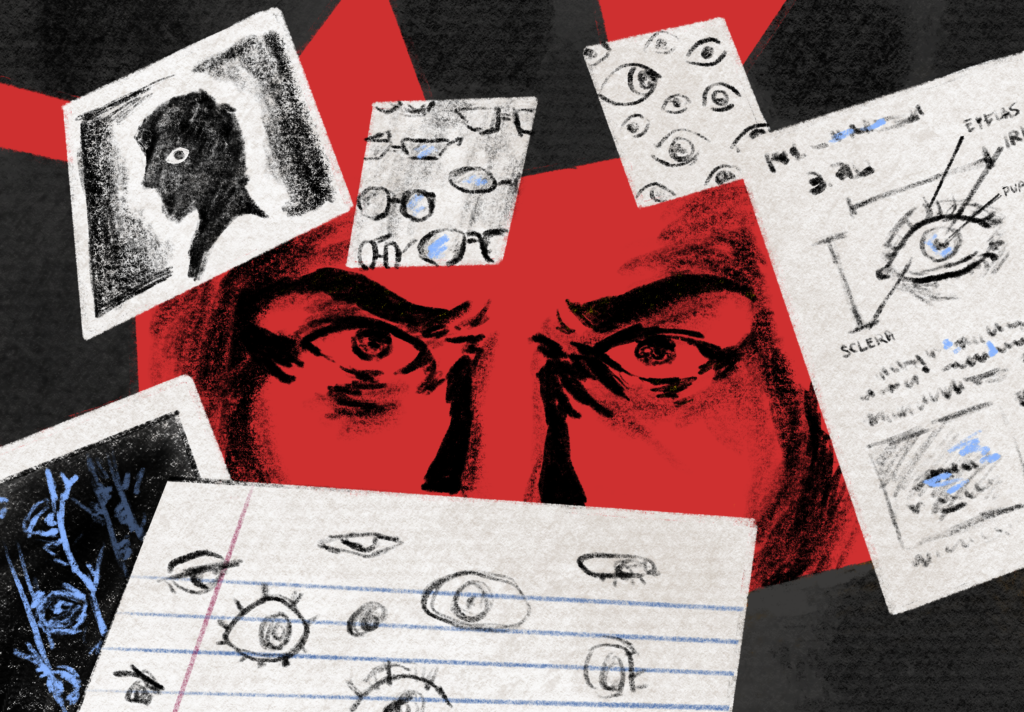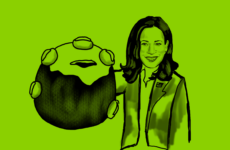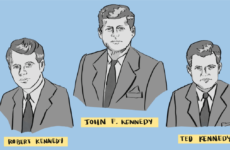
Graphic by Evelyn Kim ’25/The Choate News
By Zaki Shamsi ’26
In a world where breaking news infiltrates our ears faster than our fingers can scroll, it’s easy to wonder: who gets the mic? Should the news be government-led, ensuring a steady stream of verified truths? Perhaps it’s better in the hands of private companies, where competition could inspire innovation. Or maybe we should let the people speak for themselves — building a digital tapestry of social media posts that captures both facts and feelings in real time.
Each option feels plausible, but none is ideal. The truth is, it’s not about who is holding the mic — it’s about how we listen. What’s needed is improved media literacy to help us navigate inevitably flawed media. No matter how you slice it, the news will always be biased and incomplete, but our understanding doesn’t have to be.
At first glance, government-controlled media seems reasonable. The government is accountable for its citizens, so shouldn’t it ensure the dissemination of accurate information to them? This works for outlets like the British Broadcasting Company (BBC) or National Public Radio (NPR), where public funding produces reliable, non-sensationalist reporting.
The trouble, however, is that government-led media can slip from accountability to authoritarianism. In less democratic regimes, state-run media turns into propaganda. Even in democracies, governments have agendas, and objectivity becomes the first casualty. While government-led media might promote public interest, it often comes at the cost of bias and selective storytelling.
If not the government, how about private companies? Surely, free enterprise will keep things honest, right? Unfortunately, while privately owned media theoretically allows for diverse voices and encourages high-quality journalism, profit-driven organizations are motivated to keep us engaged, not informed.
Ratings, clicks, and ad revenue drive content. It’s not a conspiracy, just economics. We’re often fed sensationalism, with just enough truth to feel informed but not enough to question the narrative. In the race for eyeballs, nuance is sacrificed for digestible drama, leaving us misinformed.
This brings us to social media — our modern, messy, free-for-all. There’s something romantic about the idea of every citizen being a journalist, breaking the news one post at a time. But the democratization of news hasn’t led to a more informed public — it’s led to a fragmented one. Social media is the Wild West of information: fast, unchecked, and dangerous.
Platforms like X, formerly known as Twitter, excel at amplifying voices, including ones that spew falsehoods. Misinformation spreads rapidly because outrage gets more engagement than facts. And close-minded echo chambers cement our worldviews as definitive, preventing fruitful discussion with those of different opinions.
None of these systems will ever be perfect. But these systems aren’t going anywhere, and neither are their flaws. Instead of choosing the “best” outlet, it’s time we focus on how we consume the news.
Before you dive into a story, ask yourself: Who’s telling it? A well-established news outlet or a random blog post? And is who wrote it credible? Separating fact from opinion starts with knowing who’s behind the mic. Don’t settle for one version of the truth either. Read different outlets, especially those with opposing viewpoints to get the full story. This way, you avoid echo chambers and get a clearer, more balanced view of the facts.
The key to surviving today’s media landscape isn’t about finding the perfect system — it’s about becoming smarter navigators. We need to equip people with the tools to critically assess what they’re reading, watching, and scrolling through. Media literacy is about teaching people to spot biases, question sources, and understand that every outlet, platform, and post comes with its own set of limitations. In an age where anyone can publish, the power doesn’t lie in who controls the news but in how we interpret it.
Improved media literacy empowers us to engage with news without being manipulated. If we learn to read between the lines — whether they’re written by a government body, a private company, or an X user — we can extract truth from a sea of half-truths.




